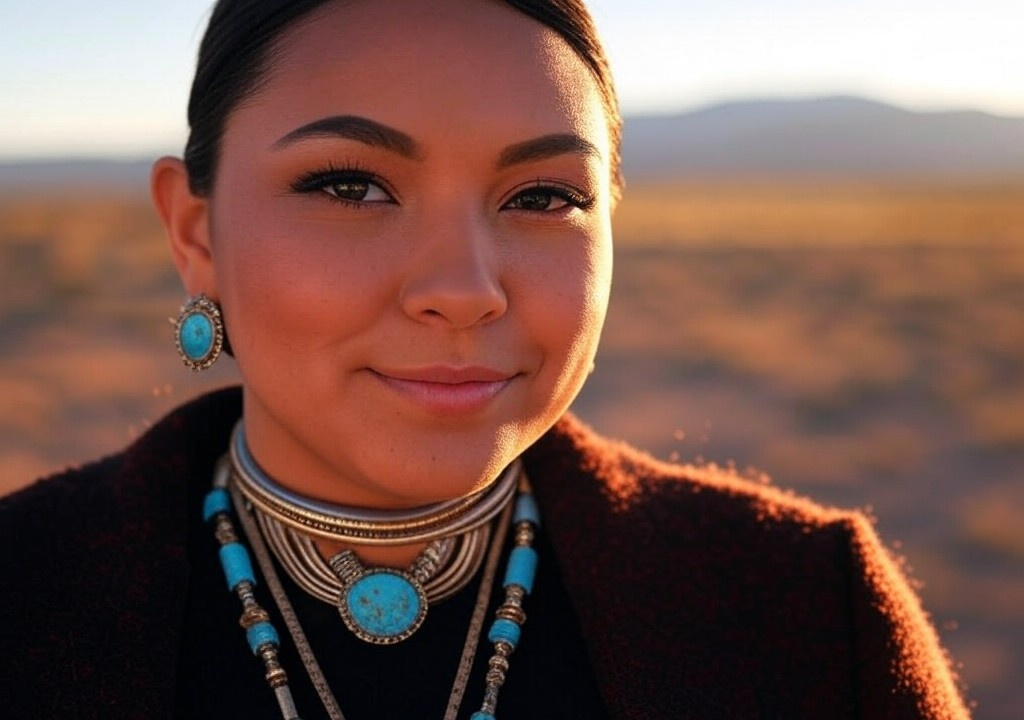In the dim light of a steelwool sky, somewhere between Albuquerque and Gallup on a crumbling stretch of Route 66, I once asked my grandmother why she told stories the way she did—always looping back around to a detail she dropped like a breadcrumb at the start of her tale. Without stopping her beadwork or glancing up, she said, “Because the story’s not just mine. It belongs to the people listening. I’m only carrying it for a while.”
That moment lives in me. It’s one of the reasons I write—and, perhaps more importantly, why I keep writing. Because writing is the act of carrying stories, whether they come from my ancestors, my love life, or the collective chaos of modern dating culture (shorter-lasting than a Snapchat streak but somehow messier).
So, what keeps me showing up to the keyboard, the page, or—when I’m especially caffeinated—a napkin scrawled with half-legible epiphanies? Let’s dive in.
Words as a Refuge
Growing up on the Navajo Nation, I learned that there were two worlds: the one outside, where people didn’t know a jingle dress from a prom gown, and the one within, where voices swirled over cups of coffee and the rhythm of a drum could soften the hardest day. In a family of storytellers, language wasn’t simply a tool; it was a safety net, a bridge, a place to land when things got overwhelming.
When I was in fifth grade, I wrote a series of three-sentence “novels” about a superhero sparrow that saved people from bad guys but also occasionally burned himself on frybread grease. My uncle called them silly. My grandfather read them aloud like they were as sacred as an Elder’s chant. Writing was a revelation—it stretched into places I didn’t know I could go. Even then, I knew: stories could make you feel safe, seen, even infinite.
To this day, when life feels like that tangled pair of earbuds you dig out of your car’s cupholder, I write to find my way back to something whole. In the same way a good relationship can feel like walking into a warm room after days of cold, words help me come home to myself.
Stories as Connection
They say no good story ever started with someone eating a salad. And no, I’m not saying we should all be hurtling toward bad decisions lit by the glow of bad ideas (read: tequila), but my point is that storytelling—whether out loud or on paper—is what knits us to each other.
As I shifted into writing for a living, I found myself leaning heavily into that idea. I remembered how my grandparents would settle disputes with stories rather than blunt arguments. There’s no “you’re wrong; I’m right” when a story does the heavy lifting. You step into it, live in it for a moment, and by the end, you might just see yourself a little differently.
Which brings me to relationships. Writing is, in its own way, a braided partnership—one strand belonging to the writer, the other to the reader. Take the time I told the story at a book reading in Portland about the first time I got ghosted (on the same day I’d baked cookies for the guy’s mom—rookie mistake). The audience didn’t laugh at me; they laughed with me, because everyone has been humbled by love. Storytelling turns pain into a shared experience, like breakup therapy without the co-pay.
The First (and Second and Third) Draft of Love
Speaking of breakups (don’t worry, we’d get here—it’s like talking romance without mentioning the pizza-date phase), writing is also very much like love. At first, it’s all butterflies and late nights, drafting endless possibilities. Then comes the messy stuff: self-doubt, trying to edit out old patterns, wondering if you’re doing it “right.”
Every great love story, romantic or otherwise, is written in chapters. There’s the breathless “meet-cute,” the midpoint where someone gets spinach in their teeth but you don’t tell them because it’s oddly adorable, and, yes, occasional squabbles over whose turn it is to take out the recycling. Writing about relationships—and living them—is a lesson in embracing the imperfections.
Revision is as much a part of storytelling as growth is in love. A relationship—like a draft—needs work. You have to ask, “Where is this heading? What’s the conflict? Does this feel authentic, or am I just trying to impress someone who wouldn’t know quality dialogue if it hit them over the head with an annotated copy of Pride and Prejudice?”
Carrying Both the Light and the Heavy
One thing my upbringing taught me is the necessity of balance. In Navajo tradition, life is about walking in beauty—not the kind you swipe through on Instagram, but the kind that comes from harmony: with the land, your family, yourself. Writing, for me, follows the same philosophy. A story isn’t complete if it’s all heavy or all light. The bitter needs the sweet. A breakup scene needs the crackle of humor tucked into the hurt, just like a first date story isn’t perfect without a little awkwardness—you know, the kind of moment where someone tries to high-five mid-hug.
When I write, I strive to balance both worlds: the moments that make your heart swell and the ones that make you want to crawl under your blanket and marinate there for a month. Because life is like a pot of good stew. The secret is letting all the ingredients simmer together—sweet corn and smoky green chiles, tender potatoes and sharp onions, unexpected spices blending into something uniquely yours.
Why I’ll Never Stop Writing
I often get asked, “Why do you do it? All this writing about people and relationships? Isn’t it emotionally exhausting?” (And okay, maybe sometimes I do cry over my Word document like it just texted, “We need to talk.”)
But the truth is, I write because storytelling keeps us alive. It reminds us of our connections to one another, navigates us through heartbreaks, and illuminates the paths we take toward joy. I write because no matter how complicated love gets—between two people or a community—you can always find something beautiful in it.
And maybe that’s the real reason my grandmother’s stories always lingered at the edges of my mind. She knew something I think a lot of people lose in the nonstop swirl of life: that words are an inheritance. A treasure. A gesture of care.
So I’ll keep writing, not just for me but for the chance that someone else might read these words—whether they’re navigating the blush of first love, knotting through a breakup, or relearning to love themselves—and feel just a little less alone. You never know whose life a story might carry in its telling.
Now, if you’ll excuse me, I have some spinach-in-the-teeth moments of my own to revise.




















